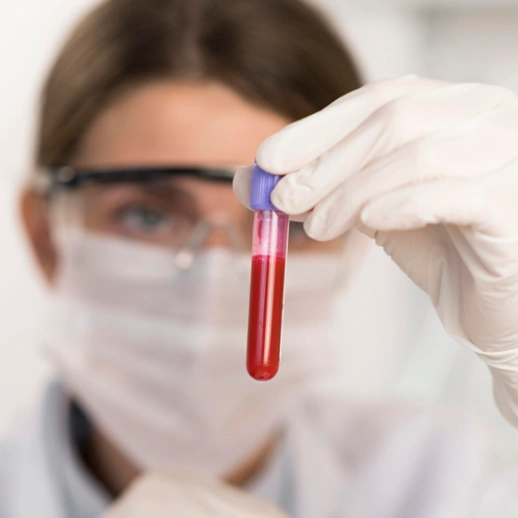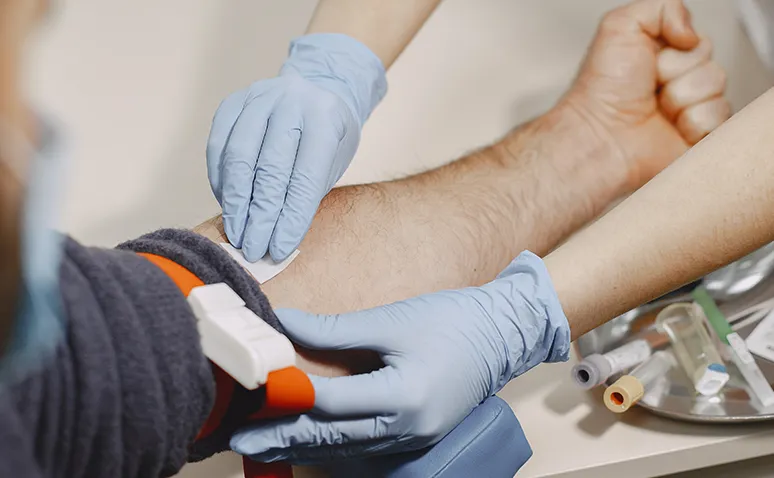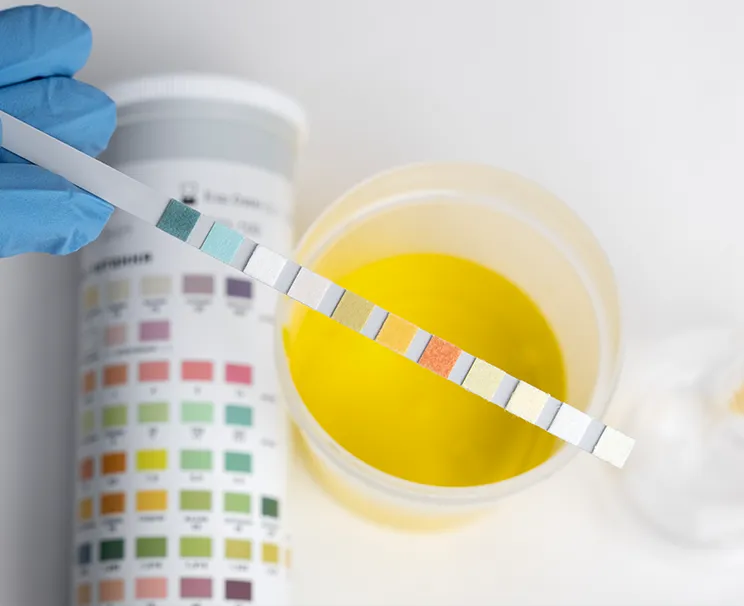The male hormone test aims to measure the levels of various hormones in the body, especially testosterone. This allows for a detailed examination of an individual’s overall health. The test is performed to monitor hormones that affect many biological processes, from the reproductive system to muscle development.
The male hormone test is often preferred in cases of infertility, decreased libido, lack of energy, or suspected hormonal imbalance. To obtain accurate results, it is recommended that the test be conducted in the morning. The results should always be analyzed in detail by a qualified physician.
A hormone test is recommended for men in the following situations:
- The onset of puberty occurs unusually early or is delayed
- Noticeable loss of muscle mass or unexplained weight gain
- Persistent irritability or emotional fluctuations
- Decreased sperm quality or inability to conceive
- Disruptions in sleep patterns or chronic fatigue
- Oily skin, increased acne, or complaints of hair loss

What is a Male Hormone Test?
A male hormone test is a laboratory analysis conducted to measure hormone levels in the male body. This test primarily examines testosterone and other related hormone levels. It provides insights into reproductive health, physical structure, and overall health status. Imbalances in hormone levels can adversely affect the functioning of various body systems.
Most of these hormones are secreted by the testes and adrenal glands. Apart from the reproductive system, they have significant effects on bone health, muscle development, and mental well-being. Particularly, testosterone deficiency or excess can cause noticeable changes in areas such as energy levels and mood.
It is recommended to assess hormone levels in the following situations:
- Reduced libido or performance issues
- Loss of muscle mass or noticeable weight gain
- Decreased energy levels or persistent fatigue
- Delayed or premature onset of puberty
- During evaluations related to suspected infertility
While hormone testing in women is typically performed on the second or third day of the menstrual cycle for accurate interpretation, male hormone tests are usually conducted in the morning and do not need to be scheduled on a specific day. However, it is essential to follow the preparation instructions provided by the doctor to ensure accurate results.
Test results must be interpreted in the context of the individual’s overall health and symptoms. Consulting a specialist at this stage is vital for an accurate diagnosis and effective treatment planning.
Where is the Male Hormone Test Performed?

Male hormone tests are typically carried out in hospitals, private health institutions, or professional laboratories. Before undergoing the test, it is important to ensure that the chosen healthcare facility has the necessary experience and infrastructure in this area.
One of the most common underlying causes of male health problems is hormonal imbalance. This may include symptoms such as sexual dysfunction, low energy, reduced muscle strength, and infertility. Therefore, the test should not be limited to testosterone alone. A comprehensive analysis should also evaluate the hormones secreted by the thyroid gland, pituitary gland, and adrenal glands.
To obtain accurate and reliable results, the laboratory’s technical infrastructure, equipment quality, and expert staff are of great importance. Tests conducted in a facility with specialists in the field of endocrinology enable the correct interpretation of hormone levels. Based on these interpretations, a personalized and effective treatment plan can be initiated.
Today, many healthcare providers offer test results via online platforms, allowing patients to access them quickly. This also facilitates timely communication with doctors and the prompt initiation of treatment. Male hormone testing should be performed not only in response to symptoms but also periodically as part of general health monitoring.
Frequently Asked Questions
The male hormone test is typically performed when symptoms such as low libido, suspected infertility, loss of muscle mass, fatigue, emotional fluctuations, or hair loss are observed.
No. In addition to testosterone, other important hormones such as thyroid, adrenal, and pituitary hormones may also be evaluated.
Tests can be performed at public hospitals, private hospitals, and licensed medical laboratories. Facilities with strong infrastructure and experienced staff should be preferred for reliable results.
In most laboratories, test results are available within 1-3 business days and are delivered to patients via online systems.
No. The test is usually done by taking a simple blood sample and causes minimal discomfort.
Results should be evaluated by a qualified doctor. If necessary, further tests or a treatment plan may be initiated based on this evaluation.
To learn more about your hormone balance and to create a personalized health plan, you can contact Denge Tıp.











